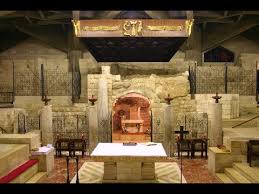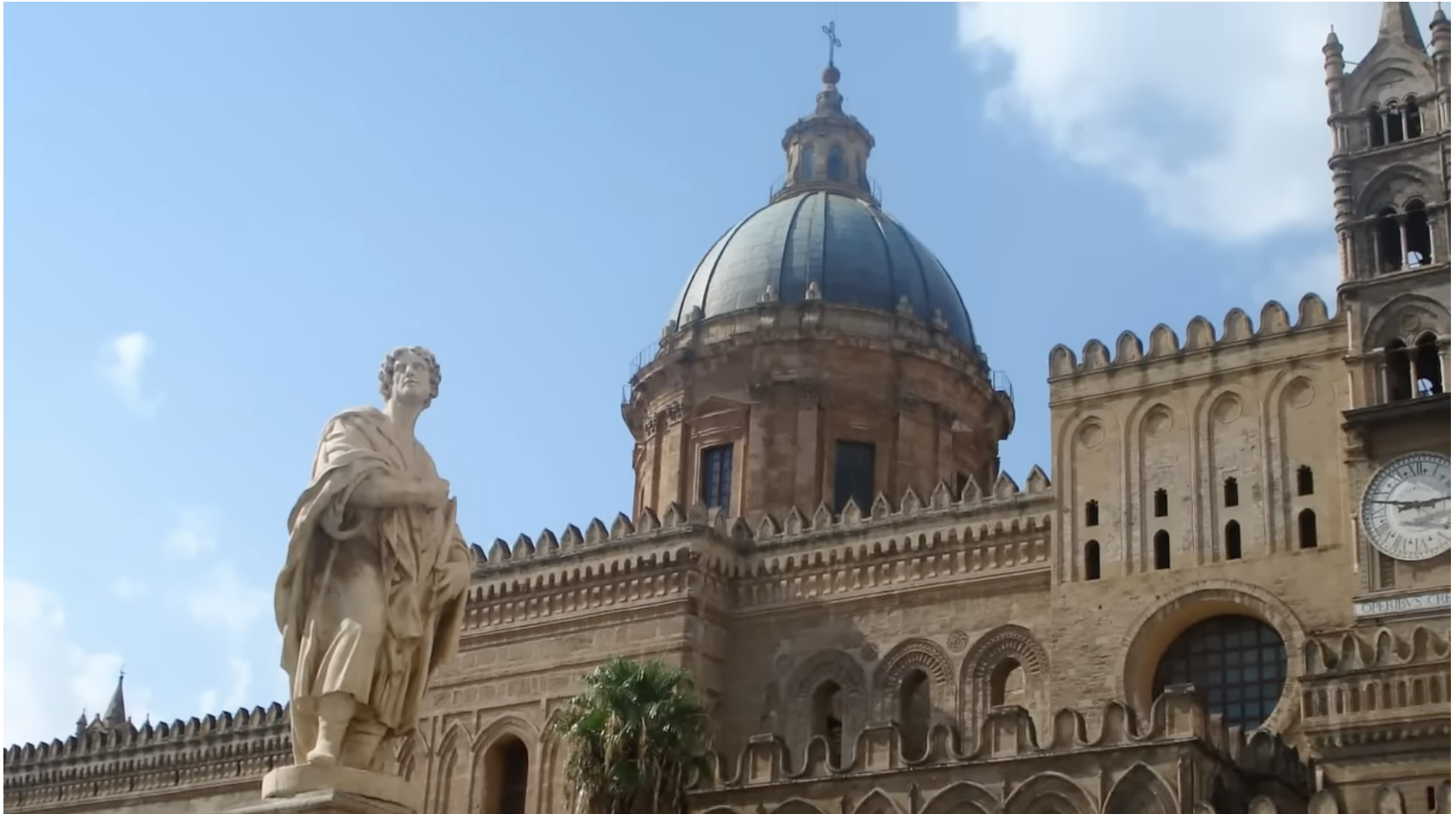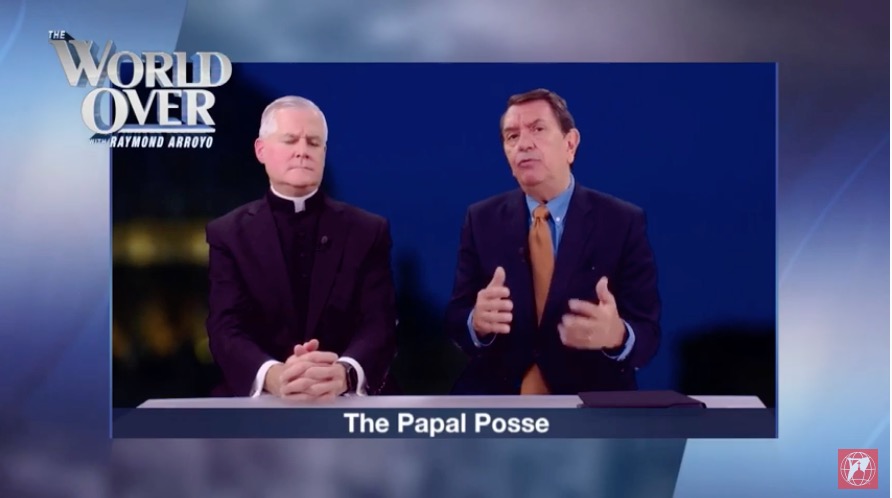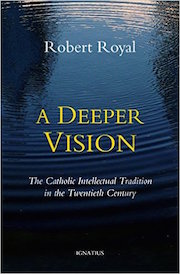Synod on the Amazon
Lost in a Dark Wood: Final Thoughts on the Amazon Synod
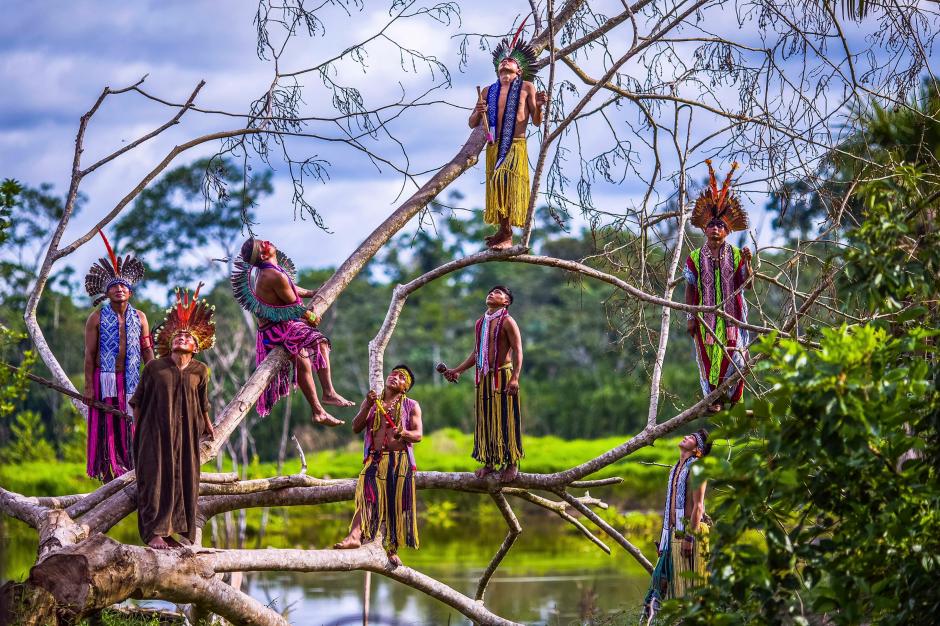
Even before the bishops assembled in Rome in early October, it was unclear what the Amazon Synod was, really, about. If it was about evangelization in that region, you would want to focus sharply, indeed narrowly, on the practical means. Because if the Church hasn’t made much headway in the region after 500 years, including the past 50 years (since Vatican II) during which several of the Amazon bishops claim to have been carrying out a more sensitive ministry close to indigenous peoples, you wouldn’t want to head off onto yet another period of ineffective wishful thinking. Read more.
Two on the Synod
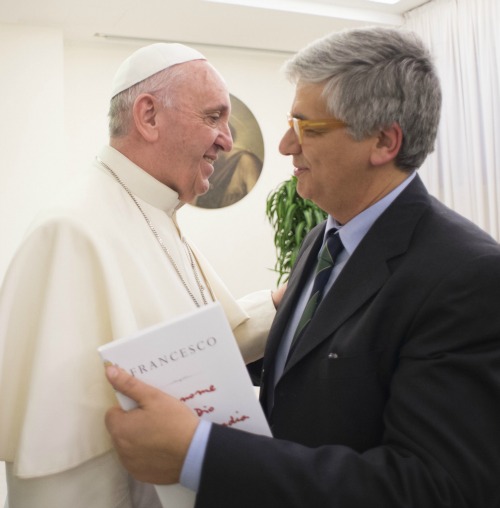
Robert Royal and Eduardo Echeverria present two views of the public-relations mess caused by the use of certain Amazonian symbols and the Vatican inability or unwillingness to explain what they are and what they are supposed to mean in the context of the Amazon Synod. Read more.
Journalists without Ethics?
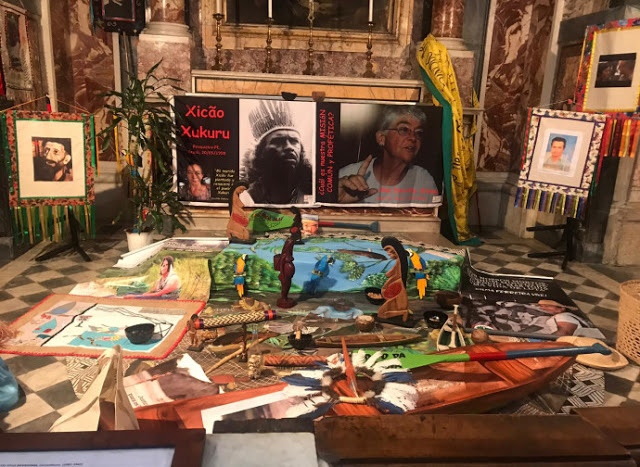
With the staggering amount of fake news that makes its way around the Internet and social media these days, it’s difficult not to be sympathetic to critiques of journalists. Yet in the grand tradition of shooting the messenger, there have been some truly stunning efforts recently, by various figures in and around the Vatican, to make it appear that criticisms of Pope Francis and some of his dodgier moves during the current Amazon Synod are simply the scurrilous tactics of so-called “journalists without ethics.” Read more.
Pachamama Sleeps with the Fishes

So. . . . The greatest headline from yesterday: “Pachamama sleeps with the fishes.” A reference, for those who do not already know the history of the Mafia, or even of “The Godfather” films, to a common practice. In Sicily, when one branch of the mob rubs someone out, they put his body in the ocean, and send a fish wrapped in newspaper to the relevant mob members and family members. He, they announce, is dead, i.e., “sleeps” with the fishes. Read more.
Wheels within Wheels?
The Synod on the Amazon resumes today for its third and final week. Things slowed down over the weekend, so today’s synod report will be brief; we wait to see what will develop as the last days unfold.
The ultimate outcome is not much in doubt, owing to the fact that the main lines were baked into the Working Document. In addition, the people selected to participate are almost exclusively of a certain orientation that’s not only Latin American, but even from the “peripheries” of Latin America. And is making heavy use of a group that, it seems, is supposed to trump all other considerations: “indigenous peoples.” Read more.
Incoherence in the Amazon?
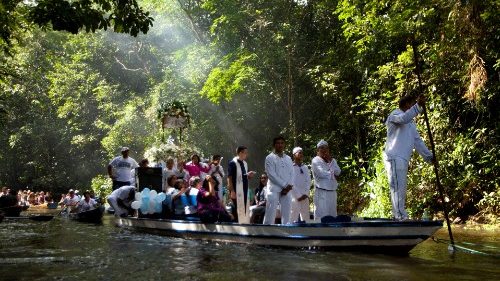
In any large organization, but especially a global and universal one like the Catholic Church, the chief executive has to take special care about two things. There will, of course, be different views, perspectives, emphases, ideas on various sides, and the boss must, first, make sure that they are all contributing to the central purposes of the body. And second, he must be extremely cautious that he himself does not undermine those purposes.
And that’s why the Synod on the Amazon, a region of considerable importance but not quite so unique as is being claimed these weeks, will go down in history, if a true history is ever written. Read more.
At the Turning Point

The Amazon Synod passed its mid-point yesterday. And as things now begin to move towards a close, several currents have become more apparent. The pope’s appointment of four new figures to the drafting committee of the final document indicates that the overall line, as might have been predicted, is now set in stone. There will be no drama about the outcome, as in past synods. But there are several particulars worthy of attention. Read more.
The Amazonian “Paradigm”
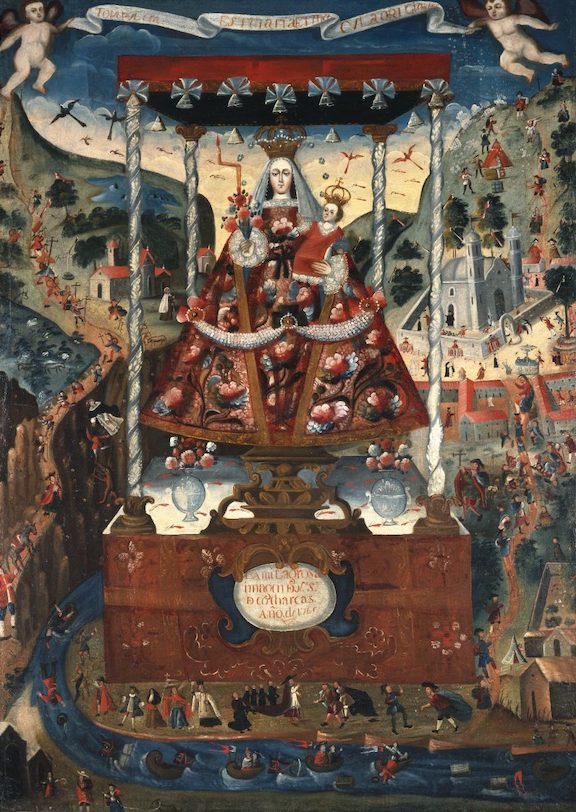
The second week of the Amazon Synod began yesterday and the usual voices said the usual things in the usual way. There was more talk of inculturation and valuing indigenous peoples and eco-conversion, but curiously little to reassure us about how it all is supposed to work, since so many participants claim to have already been engaged in just such activities for quite some time. Read more.
Who Needs an Ecological Conversion? – and a Canonization Note

We begin today – the delightfully incoherent “Columbus/Indigenous Peoples’ Day” in the United States – with several questions. Where has environmental harm to rivers, air, soil been most reversed? And where is it now most difficult for factories to pollute streams, for farms to allow fertilizer and pesticide runoff to poison local flora and fauna, and for both companies and individuals to put soot and other unhealthy particulates into the air? And where, too, are the strongest advocates for taking care of both the 7 billion people on the planet and the global ecosystem on which we all depend? Read more.
The Human as Guest?

Synods almost always move within predictable boundaries and the subjects they take on, the very language they use, is largely predictable. But a new term has popped up at the Amazon Synod in the last few days that may be significant. Various sources say that the synod participants have been talking about changing our mentality from thinking of ourselves as the lords and masters of nature to our true position – as “guests.” As with much else that happens in discussions of ecology, this has its positive and negative sides. The positive side, a very positive side, is that it repudiates a centuries-old view that corrupted the Scientific Revolution at the very start. Rene Descartes spoke of making ourselves “masters and possessors of nature.” Francis Bacon went even further advising we “put nature on the rack for the relief of man’s estate.” Read more.
The Problem of the “Two Synods”
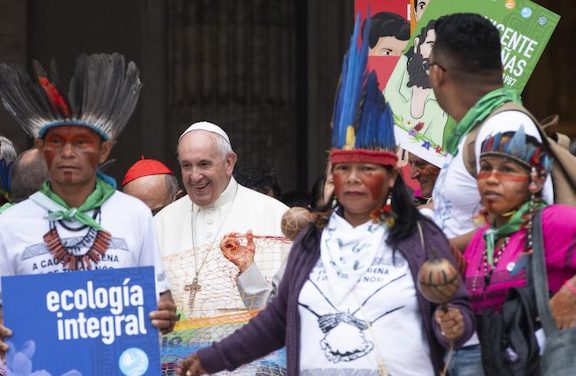
In the early days of a synod, it’s very difficult to assess what’s going on – especially because observers and journalists are not allowed into the hall. And that’s under the best of circumstances. In current circumstances, the communications office says that it has been taking special steps to ensure that as much clear information as possible is being released. A phrase has come up several times – even alluded to by the pope: they hope to keep what is really going on (“the synod of the room”) from being distorted in various outlets (“the synod of the journalists”).
This is hardly a new concern. Pope Benedict XVI spoke often of how Vatican II – which he and JPII and many others who actually participated in the Council thought of as balanced effort at renewal – quickly turned into the “Council of the journalists,” aided and abetted by heterodox theologians. In a media-interpreted world like ours, appearances can easily be made to replace reality. Read more.
The “Process” Begins
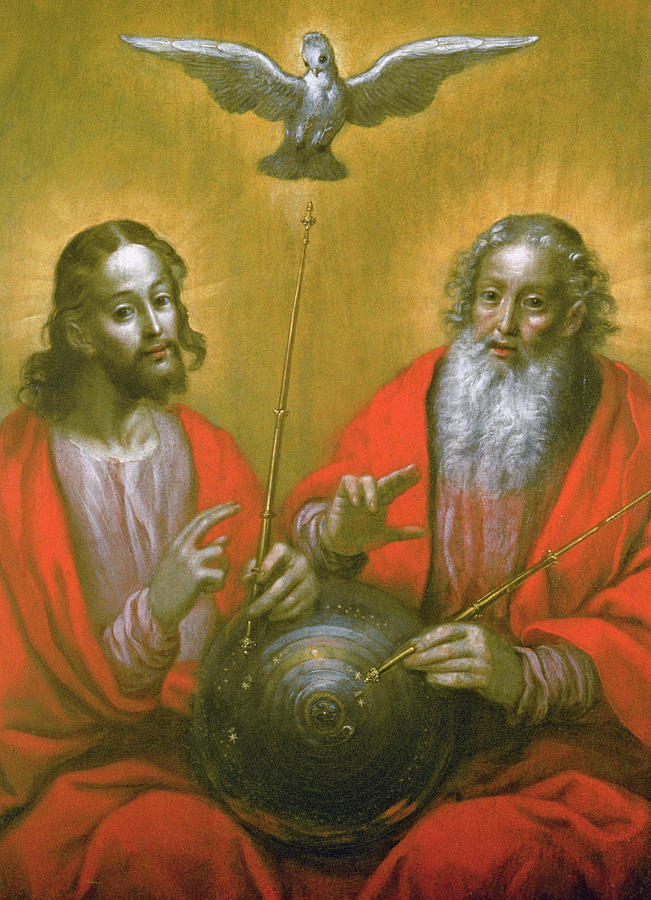
Most people reading this will be members of modern pluralistic societies, which means places where we are surrounded daily by others who have deeply different beliefs, some quite mad, some more or less sane. And there is also now a growing contingent of people who believe in nothing. And it shows.
When we turn to the Church, however, we expect something different both in terms of belief and action. We still contribute to the common good, to use the classical term, even though, in our societies, there is no common idea of what is good. We do so because we believe certain things are good for all human beings. Besides, if you have to live in the same cage as the other animals, mere prudence means you at least try to get along. Read more.
The Return of the King
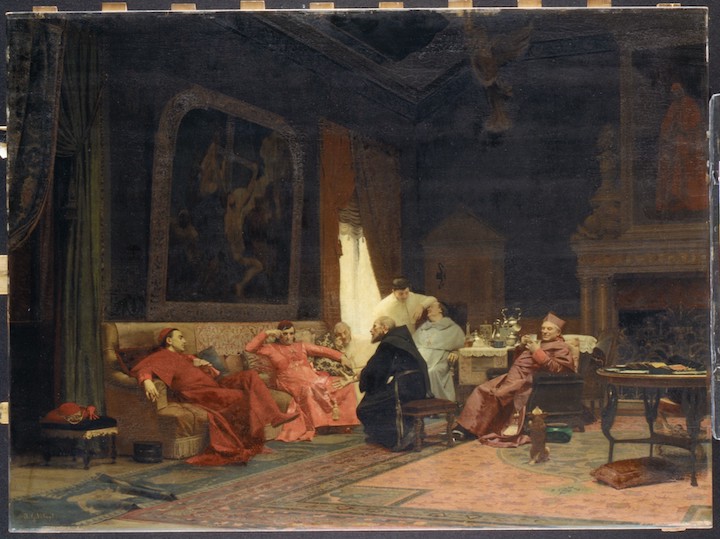
Pope Francis is fond of saying that “synod” means “walking together.” In the right circumstances, it can mean that (though usually it just means a “meeting”). In the wrong circumstances, it can take on the less happy meanings of the original Greek “synodos” – like the “meeting” that happens when two parties face each other in a courtroom – or two armies clash.
That troubled side of “synod” has been evident in past weeks. Before the Amazon Synod even started – the bishops, vested in green, joined the pope for Mass at St. Peter’s yesterday and begin their work today – there’s been a swirl of passionate claims and counterclaims, the likes of which have probably never been seen in Rome at this kind of an event. . . . Read more.



